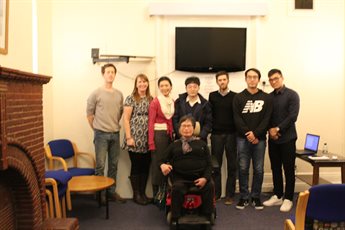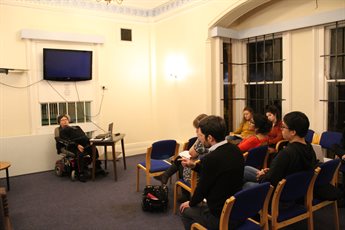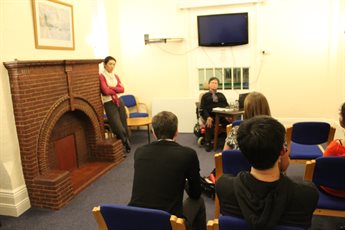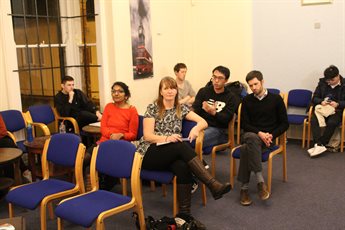The Taiwan Studies Programme (TSP) is delighted to announce a talk by Huei-mei Grace Chang Co-founder of the Taiwan Association for Disability Rights on Putting 'people' back into policy: Taiwan's recent work to promote the rights of disadvantaged groups.
Abstract
Persons with disabilities are one of the largest minorities in Taiwan. There are approximately one million and seventeen thousand disabled persons in Taiwan, out of a total population of twenty-three million. Do you know who has the guts to protect the rights of persons with disabilities? Taiwan.
Taiwan is not a member of the United Nations, but they are willing to take upon themselves the responsibility of promoting and protecting human rights for all. In August 2014, Taiwan’s legislature passed an act to implement the UN Convention on the Rights of Persons with Disabilities. How did it work? Where did they submit Government Report? How has the Report been reviewed? How did they work with government? All of these questions will be answered during the talk.
Civil society and Disabled Persons Organizations (DPOs) are extremely active in Taiwan. By working closely with the government they play a very important role, ensuring disabled persons have the same opportunities for inclusion as able persons. In addition to exerting external pressure through methods such as protests, parades and lobbying Legislators, they also negotiate with the government and monitor the governments’ progress. How did DPOs and civil society do before and after passed CRPD?
Short biography
Co-founder of the Taiwan Association for Disability Rights (TADR), Huei-mei Grace Chang now serves as : Women Protection and Gender Equality Committee(WPGEC) under TADR. Thanks to her work, she has opened up a new era of disability rights in Taiwan and the wider East Asian region. Grace has held several large international symposiums, bringing together high profile activists, academics and policy makers. With the exchange of international experiences, she has tried to expedite the awareness of disability rights throughout Taiwanese society. Grace has worked alongside other DPOs to lobby various government ministries to implement the Convention on the Rights of Persons with Disabilities (CRPD). Subsequently, Grace was invited to share the experience of how Taiwan implemented CRPD with disability rights leaders and experts from China, Korea, Japan, Hong Kong and Mongolia at the East Asia Seminar on the CRPD Implementation and the Civil Society held by University of Tokyo in 2016.
In addition to her responsibilities as Chairperson of the WPSEC, Grace is currently an expert member of Taipei City Committee of Women’s Rights Promotion and Director of R.O.C. Autism Rights Promotion Association, among other positions. Her current research project is “A Study of the Employment Barriers and Suggestions for Women with Severe Physical Disabilities.”
All of these questions will be answered during the talk.
Talk Reflection
by Jin Chen 2nd Year Postgraduate Research in International Relations
Huei-mei Grace Chang presented a lecture on the progress of changing attitudes and approaches to persons with disabilities in Taiwan, on November 26th at the University of Nottingham.
As the co-founder of Taiwan Association for Disability, Grace introduced how the UN Convention on the Rights of Persons with Disabilities (CRPD) was voluntarily applied to the island with policies that bring ‘people’ back to the stage.
Disabled people confront with difficulties in daily life, while women with disabilities are facing with much more hardship. Therefore, gender equality should also be concerned for the disabled. Persons with disabilities also enjoy all human rights, such as the right to vote and the right to have sexual life, according to Grace.
By adopting the principles of CRPD, efforts have been made to promote living conditions and political rights of people with all types of disabilities in local communities. Transportation accessibility, voting facilities at the polling stations, as well as nursing services have been improved in a recent decade.
During the lecture, Grace also interacted with the audience on issues of educational condition of disabled women in Taiwan, the context of the CRPD and its regional application, and lessons of initiatives on the disabled in the UK.



